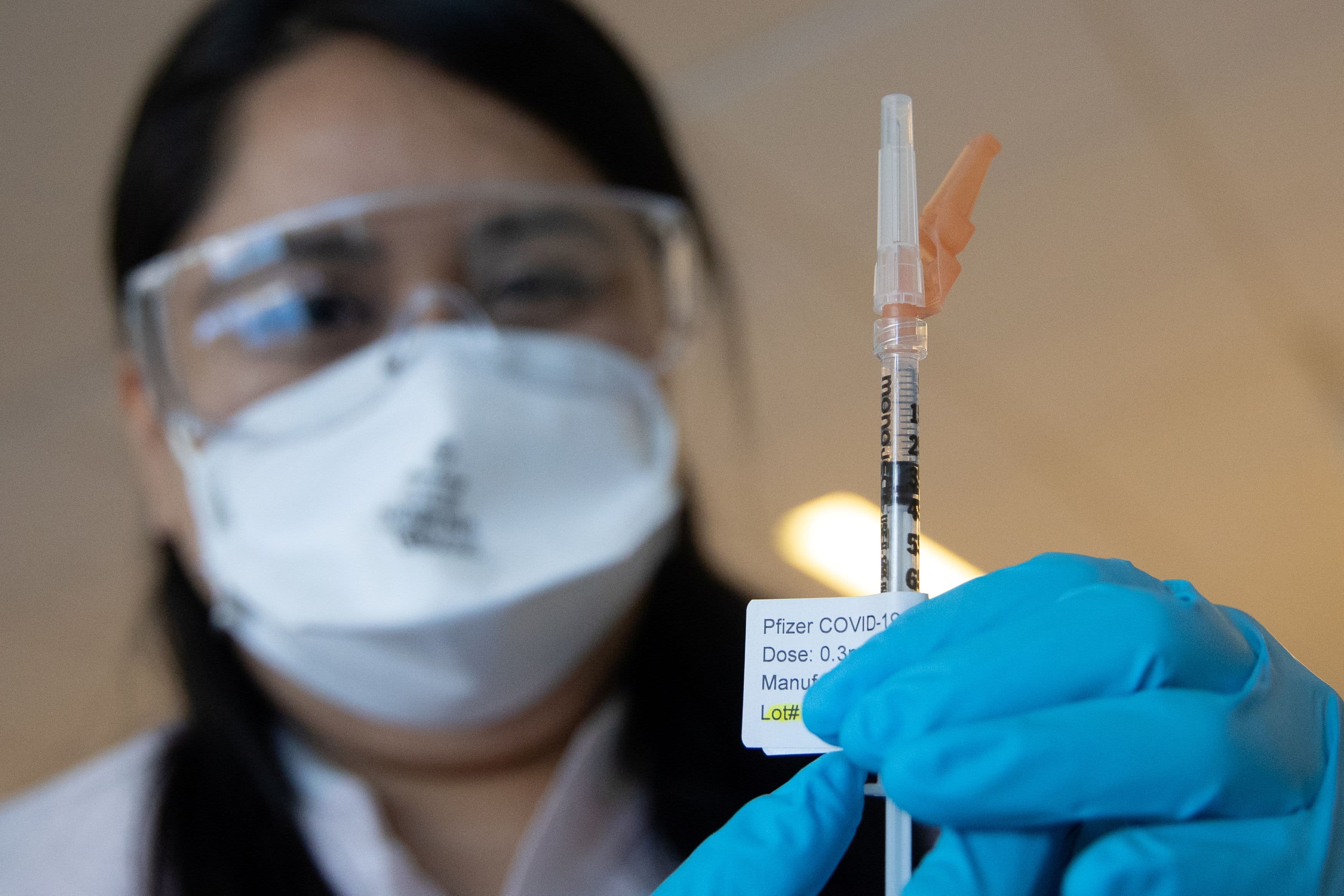
A nurse Cindy Mendez wearing a protective mask holds a syringe with a dose of the Pfizer-BioNTech COVID-19 vaccine during the coronavirus disease (COVID-19) pandemic, at NYC Health + Hospitals Harlem Hospital in the Manhattan borough of New York City, New York, February 25, 2021.
Jeenah Moon | Reuters
LONDON — A single dose of a coronavirus vaccine can reduce transmission within a household by up to half, a study by Public Health England has found.
People who do become infected with the coronavirus three weeks after receiving a single dose of the Pfizer–BioNTech or AstraZeneca-University of Oxford vaccine were between 38% and 49% less likely to pass the virus on to their household contacts than those who were unvaccinated, the PHE study found.
Protection was seen from around 14 days after vaccination, with similar levels of protection regardless of age of cases or contacts.
This protection is on top of the reduced risk of a vaccinated person developing symptomatic infection in the first place, which is around 60% to 65% – four weeks after one dose of either vaccine, PHE noted. Having both doses of a coronavirus vaccine (the delay between doses is up to 12 weeks in the U.K.) confers an even higher level of protection against Covid infection.
The U.K.’s Health Secretary Matt Hancock hailed the study’s findings as “terrific news.” “We already know vaccines save lives and this study is the most comprehensive real-world data showing they also cut transmission of this deadly virus.”
“It further reinforces that vaccines are the best way out of this pandemic as they protect you and they may prevent you from unknowingly infecting someone in your household.”
“I urge everybody to get their vaccines as soon as they are eligible and make sure you get your second dose for the strongest possible protection,” he added.
Both the Pfizer-BioNTech and AstraZeneca vaccines are being widely deployed in the U.K., with the Moderna vaccine also now added to the immunization program.
The vaccine rollout has been a standout success in Britain, and one silver lining following the destruction of the pandemic, which has caused over 127,000 deaths so far in the country.
The U.K has seen cases, hospitalizations and deaths fall dramatically since its rollout started in December, alongside strict lockdown measures. To date, almost 34 million U.K. adults have had a first dose of a vaccine and over 13 million have had two doses, government data shows.
The PHE study noted that households are high-risk settings for transmission and provide early evidence on the impact of vaccines in preventing onward transmission. Similar results could be expected in other settings with similar transmission risks, such as shared accommodations and prisons, it noted.
The study, which is a pre-print that has not yet been peer-reviewed, included over 57,000 contacts from 24,000 households in which there was a lab-confirmed coronavirus case that had received a vaccination, compared with nearly 1 million contacts of unvaccinated cases.
By linking case and household contact data with vaccination status, the study compared the likelihood of transmission for a vaccinated case with an unvaccinated one.
PHE is also undertaking separate studies on the effect of vaccination on transmission in the wider population.
